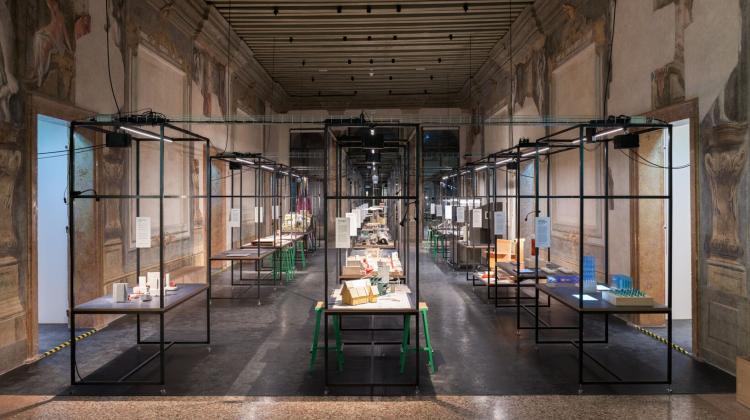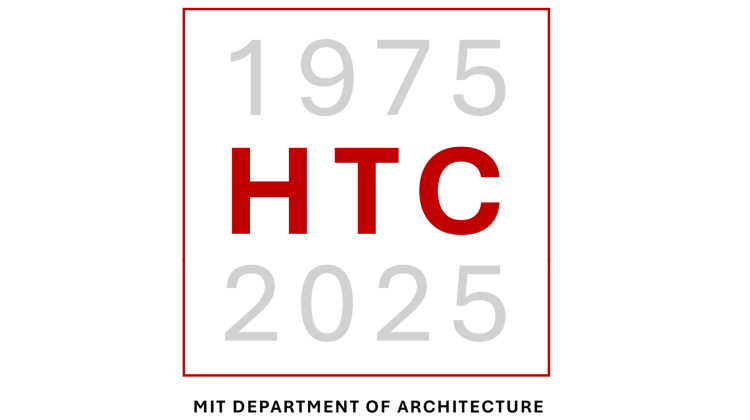19th-Century Art: Painting in the Age of Steam
UG: 4.641 | G: 4.644
Investigation of visual culture in the nineteenth century with an emphasis on Western Europe, the United States, and Japan. Topics include art and industry, artists and urban experience, empire and its image, and artistic responses to new technologies from the telegraph to the steam engine to the great refractor telescope. Strikes a balance between historical and contemporary critical perspectives to assess art's engagement with the social and political experience of modernity.
Additional work required of students taking the graduate version.
Special Subject: Advanced Study in Islamic Architecture — Decolonial Ecologies
Decolonial Ecologies examines the relationship between political ecology, architecture, and processes of (de)colonization. Students critically interrogate histories and futures of (de)colonization and evaluate theories of political ecology and architecture. Following Stefanie K. Dunning's invocation "May our egos die so that the world may live," this seminar asks, how can we continually transform our praxis on a personal and structural level to create the possibility and space for decolonial ecologies? And most importantly, whose imaginations are presently shaping our collective futures?
Weekly themes include architecture in the avant-apocalypse, origin myths of the state, the allure of abstraction, evolutionary materialism, epistemology and political ecologies of production, homo economicus v. homo reciprocans, growth and the trophic structure of the economy, accelerationism, the 'dark enlightenment,' and the cult of intelligence. For their final projects, students will be asked to produce original interdisciplinary scholarship or creative work.
Open for cross-registration. And open to undergraduates with instructor’s permission.
Archive Fever: Theory & Method
The course deals with how archivists, architects, and historians have faced the myriad archive fevers and archival turns of the 20th and 21st centuries. This period has seen a marked shift between archives being used as 'source' to becoming a 'subject' of critical inquiry. However, these questions are not limited to the past few centuries. Rather, the philosophical questions of history and its relationship with the archive span millennia from Assyrian clay tablets and Shang dynasty oracle bones to the post-revolutionary foundation of the French national archives. This seminar examines how "the architect and the archive are inseparable" and how the archivist and the historian are entangled to attend to the contested memories and denied histories embodied within buildings, cultural institutions, and architectures (Wigley, 1995).
Through visits and hands-on research in archives in Boston and New York City, students will develop a critical methodology that can be applied to their own research and practice. Students will learn to interpret and triangulate primary sources, such as texts, films, maps, drawings, manuscripts, correspondence, government documents, newspapers, photographs, and architectural models.
Preparation for History, Theory and Criticism PhD Thesis
Required for doctoral students in HTC as a prerequisite for work on the doctoral dissertation. Prior to candidacy, doctoral students are required to write and orally defend a proposal laying out the scope of their thesis, its significance, a survey of existing research and literature, the methods of research to be adopted, a bibliography and plan of work. Work is done in consultation with HTC Faculty, in accordance with the HTC PhD Degree Program guidelines.
Preparation for HTC Minor Exam
Required of doctoral students in HTC as a prerequisite for work on the doctoral dissertation. The Minor Exam focuses on a specific area of specialization through which the student might develop their particular zone of expertise. Work is done in consultation with HTC faculty, in accordance with the HTC PhD Degree Program Guidelines.
Preparation for HTC Major Exam
Required of doctoral students in HTC as a prerequisite for work on the doctoral dissertation. The Major Exam covers a historically broad area of interest and includes components of history, historiography, and theory. Preparation for the exam will focus on four or five themes agreed upon in advance by the student and the examiner, and are defined by their area of teaching interest. Work is done in consultation with HTC faculty, in accordance with the HTC PhD Degree Program Guidelines.
Theory and Method in the Study of Architecture and Art
Studies theoretical and historiographical works pertaining to the fields of art and architectural history. Members of seminar pursue work designed to examine their own presuppositions and methods.
Advanced Study in Critical Theory of Architecture
Advanced seminar. Looks at architecture and planning doctrines in what has come to be known as the “development decades,” the high period of state intervention into so-called Third World economies under the aegis of the Bretton Woods exchange system (c. 1945-1971), followed by its aftermath in the dismantlement and restructuring of state power, reflecting “privatization” and austerity doctrines. The course will take up various components that intersected with architectural and urban thinking in this era of development: land and tenure, infrastructure, housing, finance, administration, and cultural forms relating them to influential economic doctrines of the time as well as the ideological tendencies of governments in the Third World. Particular attention will be paid to the circuit of technocratic “experts” patronized by the Bretton Woods organizations, and later global consultancies (McKinsey’s) as well as the neocolonial politics of foreign aid. Particular attention will be paid to how architects and related experts on questions of space responded to the bureaucratic and institutional frameworks of international and national development, and the sundry “clubs (Paris, Rome), think-tanks, consultancy mechanisms, as well as elite university-based forms of expertise that were entangled in these circuits. Also of interest is the intersection, in the course of these engagements, of the latter history of architectural modernism with the social sciences, from anthropology, econometrics to systems theory, etc. Comparisons with American and European (“Northern”) examples of space and city planning and mechanisms (instruments such as location theory, zoning, etc.), as also cultural forms (cinema, theater) will be elicited to highlight key structures of comparison, contrast, or influence.
Requires original research and presentation of oral and written report.




